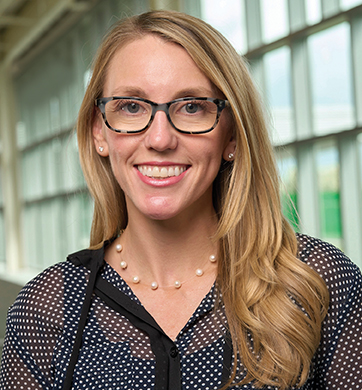Community Life at the Library | Editorial
Perhaps one of the truest versions of life in America’s small and rural communities can found each day in their public libraries, where residents connect.
When small libraries succeed, everyone prospers
 The U.S. Census Bureau reports that nearly half of American counties have fewer than 25,000 residents, making small towns a rather large demographic. When migration patterns shifted from rural to urban areas at the turn of the 20th century, more people began living in America’s cities than its small towns.
The U.S. Census Bureau reports that nearly half of American counties have fewer than 25,000 residents, making small towns a rather large demographic. When migration patterns shifted from rural to urban areas at the turn of the 20th century, more people began living in America’s cities than its small towns.
What’s life like in those places today? According to Pew Research, 70 percent of rural residents say people in other types of communities don’t understand the problems they face.
They’re probably right. My understanding of rural Appalachia, for example, comes mainly from books—Cynthia Rylant’s When I Was Young in the Mountains to Barbara Kingsolver’s Demon Copperhead—which is to say, my knowledge is rather limited.
When I heard Kingsolver speak a few years ago at a library program, she described the challenges of her Appalachian home as those of a place where exploitation started with the land and moved on to the people.
If we focus on the people, perhaps one of the truest versions of life in America’s small and rural communities can found each day in their public libraries, where residents connect. This is one of the reasons LJ annually celebrates the Best Small Library in America.
In many small towns, the library may be one of few local resources providing critical services people can’t access elsewhere. It’s also often a place where residents can actively contribute to their community, whether by volunteering time, sharing knowledge, or simply showing up. There may be no greater indication of the value placed on the public library than residents believing in what the library does for the community and having a stake in its success.
For example, in Iowa, where the state recently adopted book ban legislation, one might expect small town residents to be ambivalent about their library. Yet when a record-breaking flood threatened Cherokee Public Library this summer, staff posted a call for help—they urgently needed volunteers to move materials to higher ground—and locals responded immediately. Amid the chaos and damage to their own homes, people came forward to lug books and town archives to safety.
It is this same spirit of service that makes the Round Valley Branch of Mendocino County Library, LJ’s 2024 Best Small Library in America, shine.
The library’s very existence is something of a miracle. Set in a remote part of northern California, residents came together years ago to give themselves and future generations the gift of a public library.
As LJ Executive Editor Lisa Peet describes in “Community Anchor,” Round Valley Branch library acts as a hub. The community radio station, a library Friends project, runs 24/7, sharing critical information during wildfires; local artists and artisans sell their wares at a weekly farmers market in the library’s walnut grove; a café and community commons make the library space a place to gather in Round Valley.
Still, you can’t separate the dark history of the library’s home, Covelo, from its present. In the 1850s, several Indigenous tribes were forcibly relocated onto land occupied by the Yuki people. Forced to live together without even a shared language, it took many decades before a unified community, the Round Valley Indian Tribes, emerged.
Despite great progress, challenges endure. Covelo is not immune to America’s crisis of missing and murdered Indigenous people—a priority issue for libraries during ALA President Cindy Hohl’s tenure. Poverty driven by the closing of lumber mills and crime associated with illegal cannabis production exist against Round Valley’s natural backdrop of rocky canyon, farmland, and conifer groves.
What started with the land is now, so crucially, about the people.
Building trust, addressing trauma—this is work that happens in libraries when we bring people together. In recognizing the exceptional work of the Round Valley Branch library, we don’t just celebrate the necessary resources it shares with its residents—we celebrate the ways it carries hope and joy forward.


Add Comment :-
RELATED
ALREADY A SUBSCRIBER? LOG IN
We are currently offering this content for free. Sign up now to activate your personal profile, where you can save articles for future viewing








